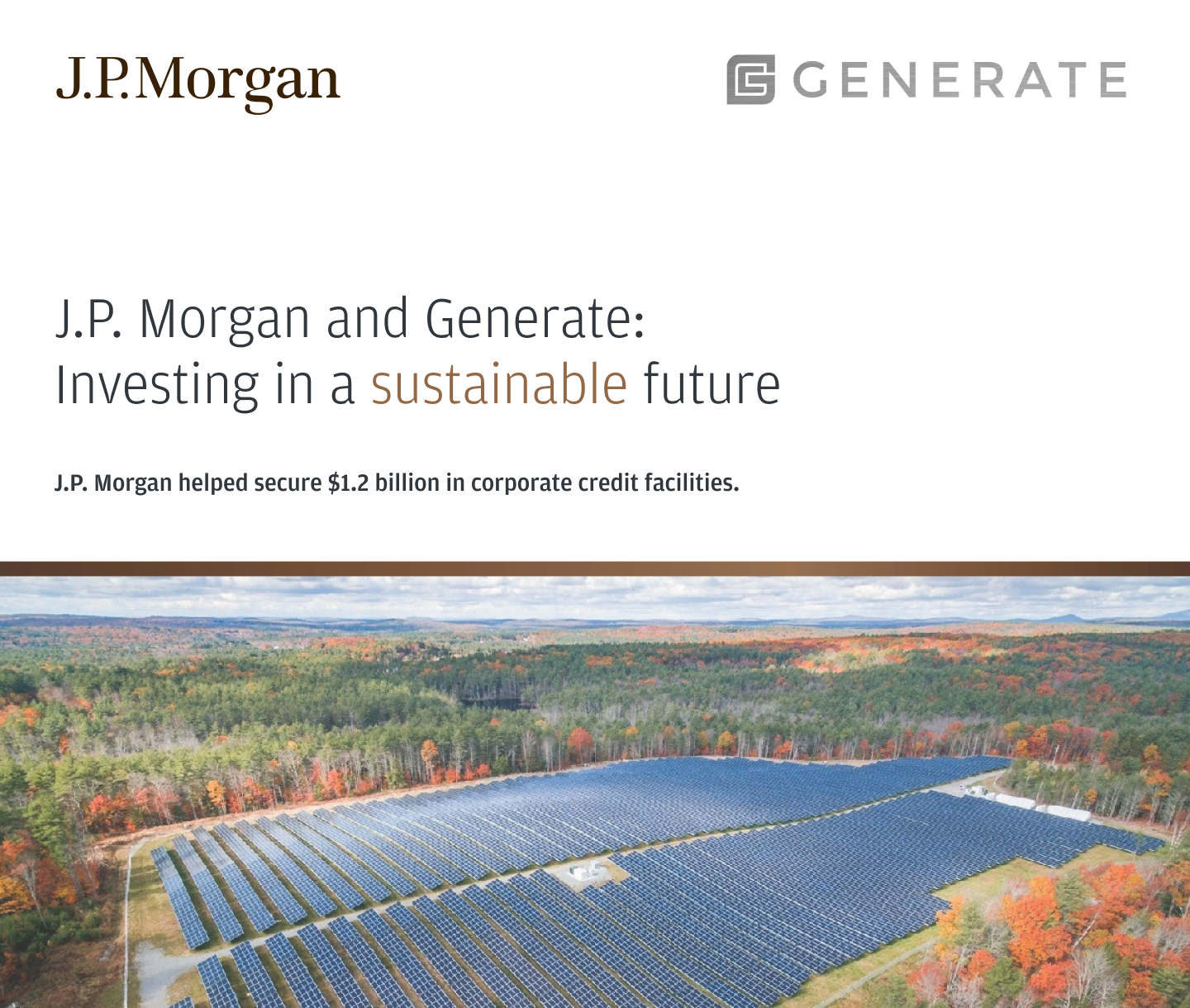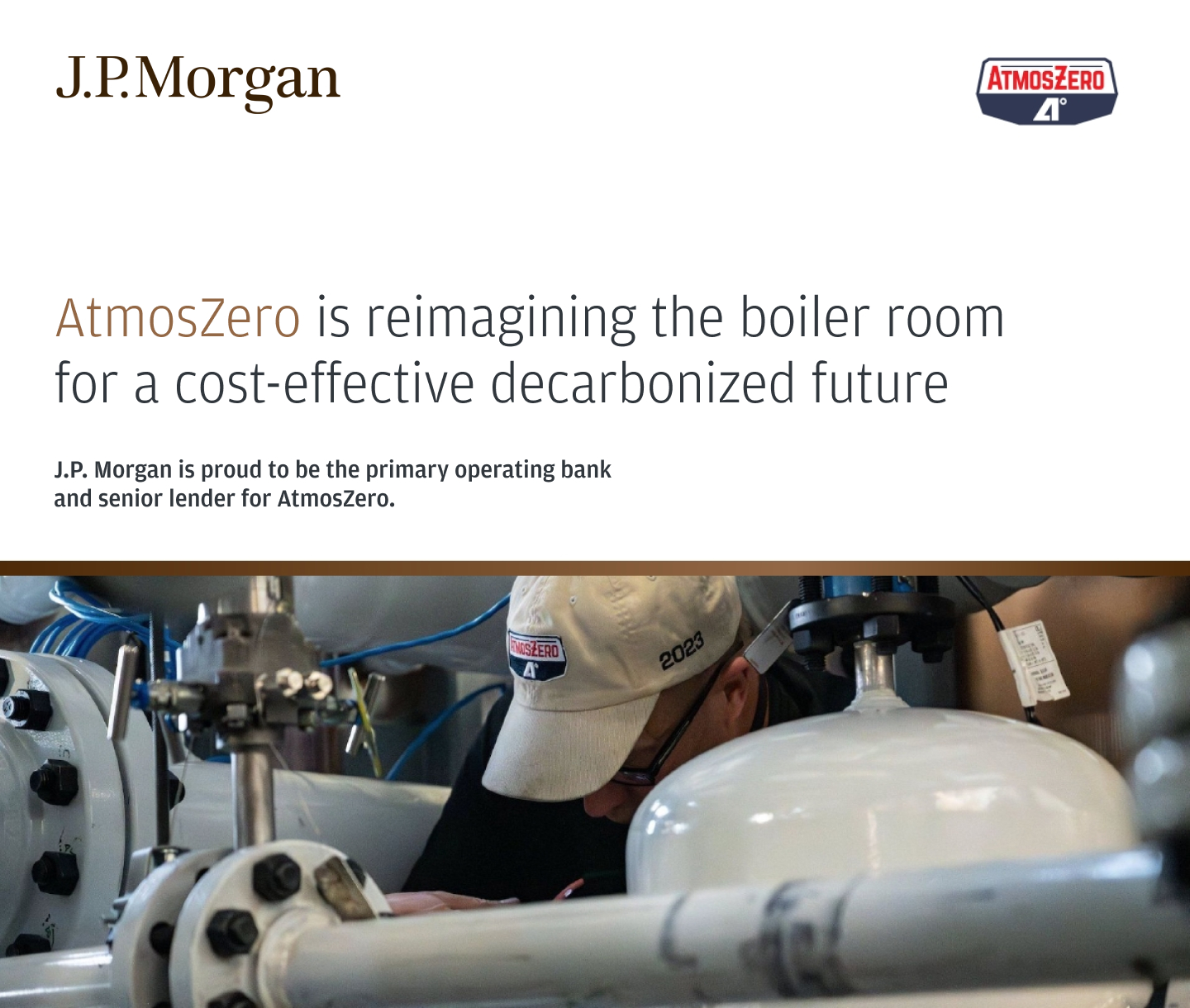Global climate policy and sustainable finance are entering a pivotal phase in 2025. Major shifts in U.S. climate policy could reshape carbon transition strategies, while China, Brazil and countries in Europe have emerged as increasingly influential voices on climate action. In this quarterly update, experts from across JPMorganChase explore key green economy trends that could impact your business decisions this year.
Building on our recent look into sustainable food and AgTech industries, emerging climate technologies continue to reshape markets. Our Green Economy Banking team will be tracking these innovations at key industry events throughout 2025. In March, members of our team will be participating in the Solar + Wind Finance and Investment Summit and the University of North Carolina Cleantech Summit.
In this quarterly update, we’re also introducing Dr. Sarah Kapnick, Global Head of Climate Advisory at J.P. Morgan. Drawing on her experience as former chief scientist for the U.S. National Oceanic and Atmospheric Administration (NOAA), Kapnick provides her insights on navigating shifts in the landscape. In addition, we feature practical examples of how clients are capitalizing on these trends.
New regulatory landscape for energy transition
The new U.S. administration is signaling significant changes in energy and environmental policy. Key changes will likely reshape permitting processes and energy transition policies, creating ripple effects both domestically and globally.
The administration’s approach marks a shift in project development timelines, which could create new opportunities in the energy sector. “Be on the lookout for legislative action on permitting and environmental reviews, especially the omission of environmental reviews in new rules and regulations,” Kapnick said.
The 2024 global elections have reshaped priorities around climate, industrial and trade policies. This heightened focus takes on greater urgency as nations prepare for the 2025 U.N. Climate Change Conference (COP30) in November, the largest climate negotiation since the Paris Agreement.
“I'll be closely watching climate, industrial and trade policy developments—both domestically and internationally,” said Heather Zichal, Global Head of Sustainability. “This will be especially interesting heading into COP30. With the U.S.’s role expected to shift in the climate negotiations, I’ll be tuning in to how global players like China, Brazil and Europe will step up to the plate and drive the agenda.”
According to Kathleen Milazzo, Managing Director, Energy, Corporate Banking, the regulatory environment in 2025 will likely favor expansion of energy supply, including liquefied natural gas (LNG) export activity. “Data center energy demands, ongoing transition needs and global market dynamics continue to drive LNG growth,” Milazzo said.
Rubiao Song, Head of Energy Investments, sees sustained momentum in renewable energy development: “Even amid federal policy uncertainties, growing electricity demand continues to drive renewable deployment.”
Energy transition and climate tech advancement
Despite domestic and global policy uncertainties and the possible turn to LNG, the momentum toward carbon transition remains strong. The transition to a low-carbon grid continues as a global investment priority, spanning renewable energy, nuclear power and emerging technologies like carbon capture and hydrogen.
“In Northwest Europe, we’re seeing significant momentum around large carbon-capture and storage hubs,” says Hannes Kofler, Managing Director, Energy, Power & Renewables, Investment Banking. “Operators and emitters are moving from planning into action, finalizing investment decisions and beginning construction.”
The evolution of green hydrogen marks another milestone in Europe’s energy transition. Kofler notes, “Europe’s first industrial-scale green hydrogen plants are expected to come online in 2025, drawing close attention from investors.”
Climate intervention technologies are also reaching new maturity levels. “Watch for innovative companies securing venture capital funding in 2025, particularly in carbon removal,” said Kapnick. “We’re seeing viable solutions exiting laboratories in areas like weather modification that were once in the realm of science fiction.”
Innovative financing and investment structures
Financing structures, including tax equity and credit transfer markets, are expected to play a significant role in supporting renewable energy growth. There is also a focus on raising capital for projects related to methane emissions, carbon capture and other energy transition initiatives.












